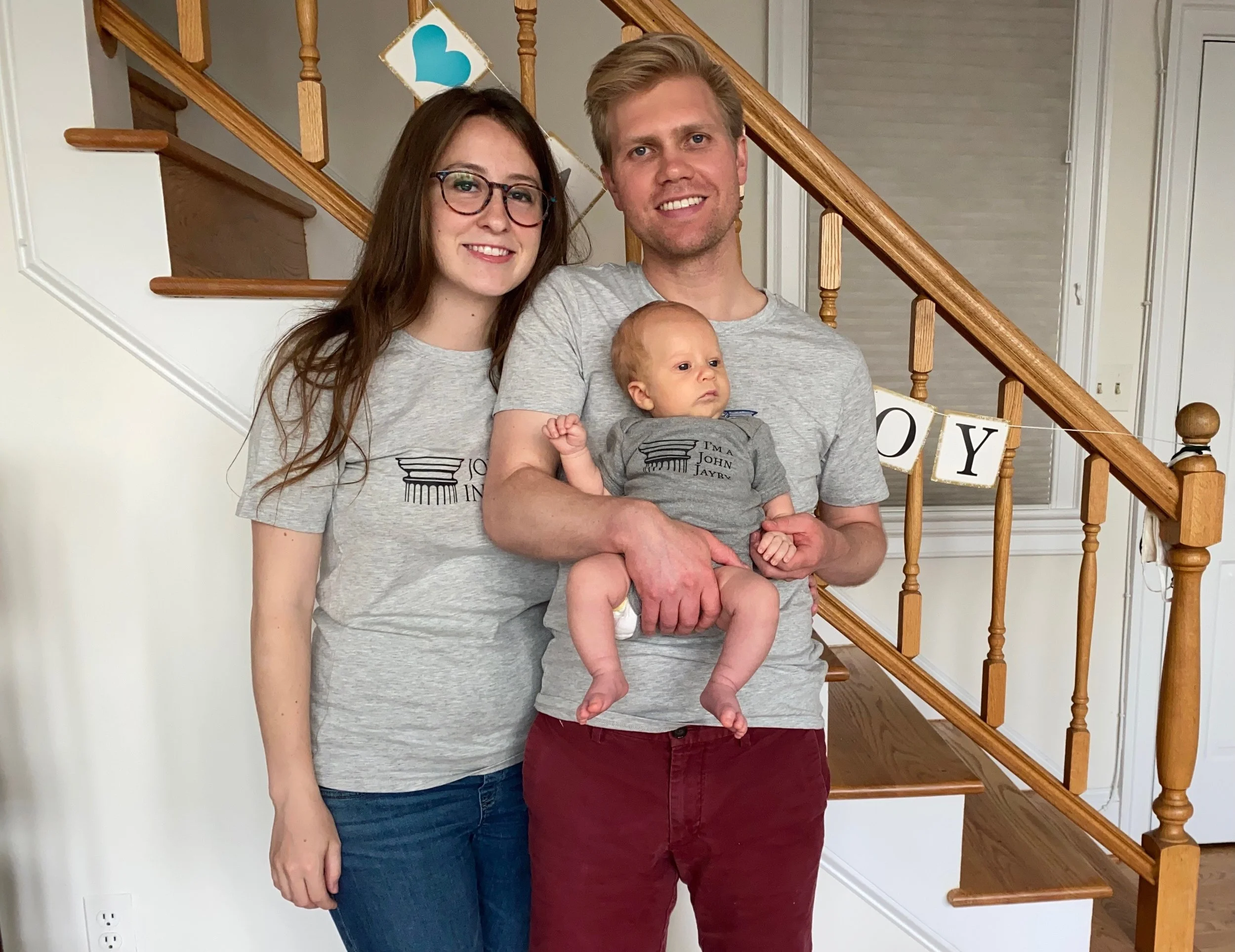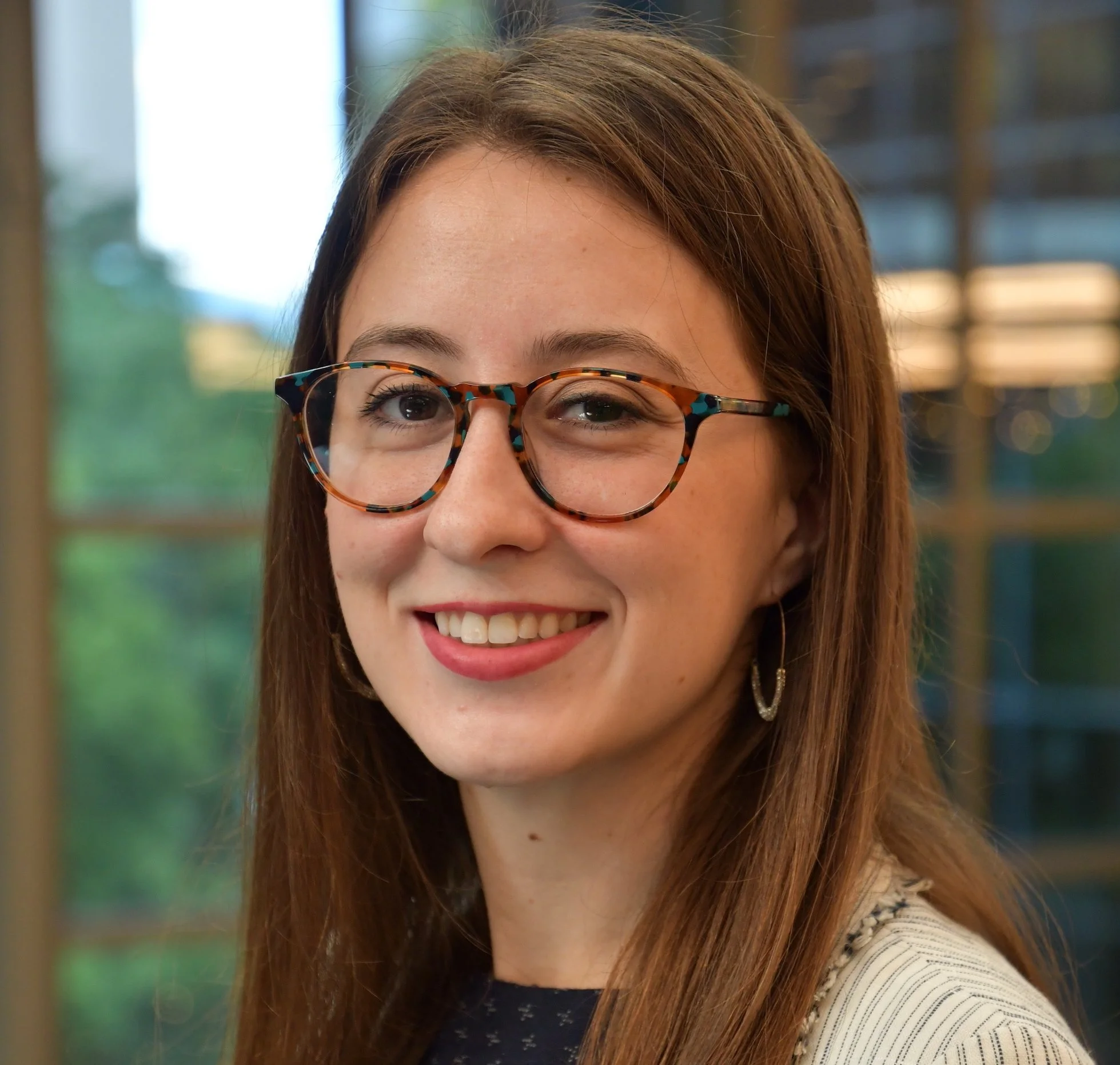Elayne (Allen) Schwalbach – John Jay Fellow, Fall 2017
Wife, Mom, Editor at Public Discourse
How do we find connection and community in the contemporary world? It’s one of the most pressing and personal problems that young people face today.
It’s also a widely-noted paradox: People are apparently more connected than ever before. We have the informational and social technology that allow us to communicate instantly with anyone, anywhere in the world. To be alive in the 21st century is to be able to FaceTime your Australian grandmother from the Florida Keys or from atop a mountain in the Alps.
We’re free to move, to travel long distances in a hurry, and to choose our own communities, all on the basis of shared interests or beliefs. So why do so many people feel increasingly lonely and adrift?
In Why Liberalism Failed, Patrick Deneen argues that liberalism tends to enable and glorify the freedom of the individual and the power of the state at the expense of the mediating institutions that bind us together and help us flourish—churches, families, civil society.
Another thing, says John Jay alumna Elayne (Allen) Schwalbach, is that modern life and all it demands is just so noisy. “Our lives are overscheduled. The political climate is suffocating. So few people can find spaces for silence and reflection.”
Elayne is a Texan at heart who found her home in the Northeast, writing and editing for the publication of Witherspoon Institute, Public Discourse. There, she manages the day-to-day operations of the journal, works with authors, and keeps the publication fresh, yet thoughtful. Public Discourse was a fitting landing spot for Elayne, since discourse is at the heart of the fellowship-in-residence program at the John Jay Institute. Discourse, free yet respectful, permeates the fellowship.
In a time of social and spiritual atomization—of people living fragmented lives in digital, transitory worlds—the John Jay Institute is rooted in the belief that humankind is inherently social and created for community. People are connected and accountable for each other. Our common brotherhood requires us to keep and care for each other—on both a civic and moral level.
Elayne was first drawn to the fellowship because she shares these beliefs. She wanted to build friendships and community around shared values in an environment of true leisure. Not “leisure” in the sickly contemporary sense of “idle, not work,” but in the traditional Aristotelian sense of that which we freely pursue for its own sake. At John Jay, Elayne felt free to think deeply for its own sake and pursue friendships that are wholly non-transactional. In so doing, she found friendships rooted in truth and intellectual pursuits—and never looked back.
As a Fellow, Elayne read widely from thinkers in different philosophies and faith commitments. Fellows dive deeply into the works of Aristotle, Dietrich Bonhoeffer and the literary lights of Christianity and democracy. The animating spirit of her experience can be encapsulated by the famous words of E.M. Forster in Howard’s End:
“Only connect the prose and the passion and both will be exalted.”
“The fellowship helped me in how I approach my work,” Elayne says. “Because of what we did at John Jay, I know how to engage in conversations much more deeply. It has allowed me to take my work as an editor of a faith-friendly journal so much farther.” She says her intellectual training as a John Jay Fellow empowered her to read deeply and think critically.
The educational climate fostered within the fellowship warmly welcomes Evangelical Protestant, Catholic, and Orthodox believers. Twice a day, there is daily prayer among the Fellows, completely voluntary and open to all Christian practices.
“Prayer and contemplation are so rare within community these days,” Elayne says. “There are so few spaces for that available, so it’s urgent to support those places where they exist—to preserve those places and build them up while we can. The John Jay Institute is one of those places.”
Many programs call themselves fellowships, but the John Jay fellowship embodies this concept in a special way. Elayne emphasizes that program’s intimate setting—the same few people sharing a single space—produced a profound sense of community. It gave her a sense of peace and routine, and she emerged from that contemplative space with a holistic sense of who she is, and of her personal and professional vocation.
Post-fellowship, one of those friendships developed in a particularly vocational way: Elayne met her husband, Jude, at John Jay and built a relationship founded in truth, honor, respect, and discourse. They began to date following their time in the fellowship, and now they are married and recently had their first child, Joseph (also known as a Jayby, which is the child of two John Jay alumni)!
Elayne is deeply grateful for the time she spent as a John Jay Fellow. It offered her a formative oasis of study, contemplation, and connection that has prepared her to live well in a world marred by distraction, isolation, and noise. As an editor for the Public Discourse, that experience helps her to foster deep conversations about faith in the public sphere.
Elayne truly drew upon every level of the John Jay fellowship’s vision. She engaged in true intellectual discourse, found a faith revelation, and even fulfilled humankind’s highest calling in this life: to love and be loved. However, she never let the height of her success detract from the lighter things in life. As she admits, “There is no other time for you to temporarily cast aside the cares of life to think about your vocation and your future. It’s also,” she adds, “just a really fun time.”


